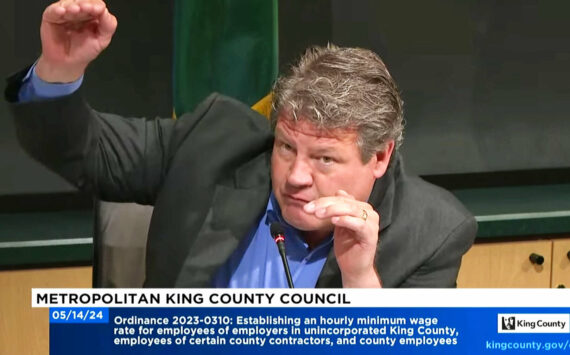When the Department of Justice announced last week that it would not fight the newly enacted pot legalization laws of Washington and Colorado, the press turned for comment to Mark Kleiman, dubbed by the press as our state’s “pot czar” and by himself, jokingly, as “hemperor.” Washington’s top pot consultant chimed in from Los Angeles, however.
At the end of July, Kleiman’s consulting company, BOTEC Analysis Corp, gave up its Tumwater apartment-cum-office. “We’ve folded up our tents,” says Kleiman, who teaches public policy at UCLA in addition to heading BOTEC. The company is also winding up its final projects for the state, leaving the Liquor Control Board on its own as it refines regulations for the fledgling recreational marijuana market.
Kleiman, who never moved here but made periodic trips to the state, says he expected his Washington stint to last longer. “I cleared out my teaching schedule for the fall,” he says.
BOTEC’s contract with the state runs through April (with the possibility of extensions), but his company works on specific projects assigned by the LCB, for which it is paid an hourly rate of $292. After churning out a variety of reports, BOTEC pitched 20 more, according to Kleiman. But the LCB said it had run out of money.
“BOTEC wanted to do a lot more than we had the resources to pay for,” confirms LCB spokesperson Brian Smith.
When it hired Kleiman last March, the LCB said it had budgeted an initial $100,000 for the much sought-after consulting work. The state ended up paying much more–$814,000, as of last week, with one payment still pending, Smith tells SW.
It might seem a little strange that the pot czar has left while the state is still immersed in crafting regulations, the latest version of which are to be made public tomorrow. But Smith emphasizes that Kleiman’s fulsome title was a media construct. The academic’s reports concentrated on market analysis and technical subjects, like the projected impact of legalization Initiative 502’s taxing scheme on the price of pot. The work informs but does not direct the LCB’s decision-making.
That’s not to say that Kleiman, who last month briefed Seattle City Council while being trailed by a New Yorker writer, hasn’t expressed his opinions. The blunt-talking academic has stirred controversy at times, for instance by raising sharply critical questions about the medical marijuana market. “The medical system is unregulated and unlicensed. You don’t even have required testing,” he reiterates to SW. Medical marijuana entrepreneurs have not been pleased.
Smith says, however, that such controversy has nothing to do with the state’s putting a wrap on BOTEC’s projects, which he describes as a purely financial matter. “We’re satisfied with what we got from BOTEC,” Smith says.








